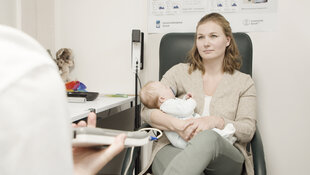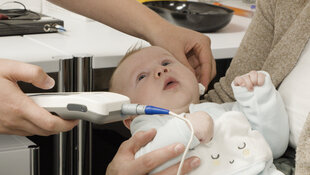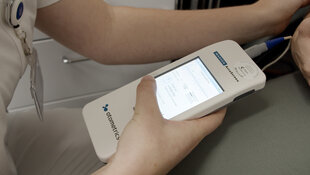What happens if the Hearing Screening test did not pass?
Here are several reasons why the test may be negative. Residual amniotic fluid can block the ear canal. This is nothing to worry about and will take care of itself. However, hearing impairment may also be detected. If the test is negative, it must be repeated after a few weeks!
Is the test performed on all newborns?
Hearing screening should be performed on both ears of all babies. The health insurance company pays for this test. Ask if you are not sure if the test was done on your baby. Birth centers or small hospitals that do not have a screening machine available must send babies to a pediatrician or clinic for screening. Even if your baby was born at home, hearing screening must be done.




